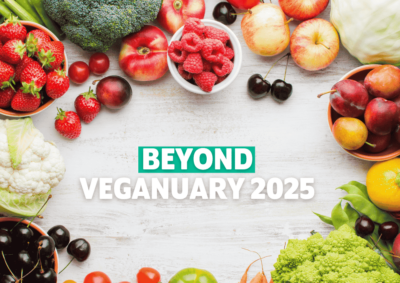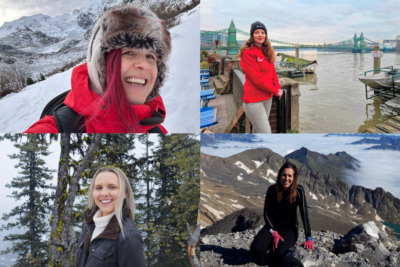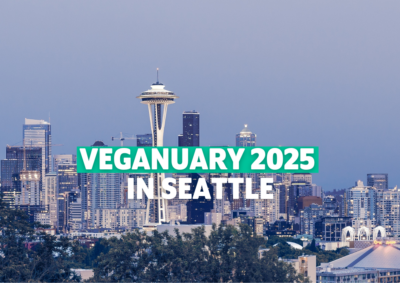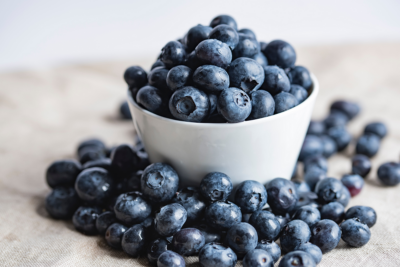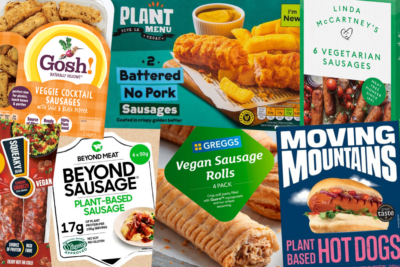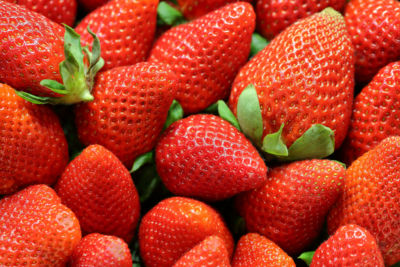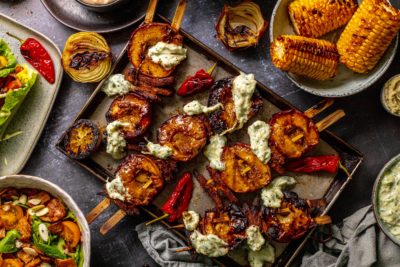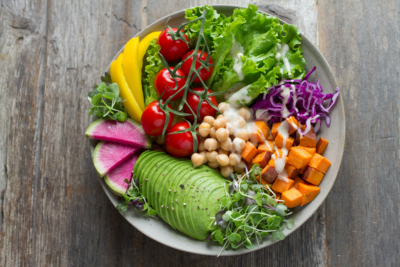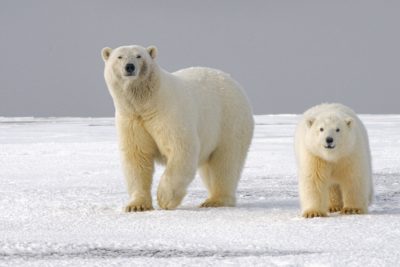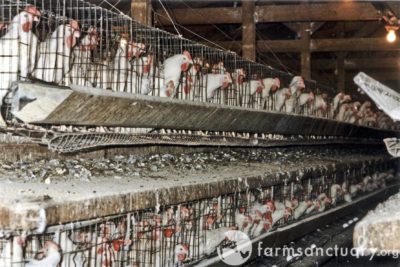One of the many environmental problems associated with farming animals is the waste they produce. When small-scale farming produced small amounts of slurry, it could be applied to the land as fertiliser. Now that there are billions of farmed animals on the planet[1], the amounts produced are gargantuan, and it cannot easily be disposed of. Instead, this fermenting manure is stored in immense tanks and ‘lagoons’, from where it all too often leaks out.
Once in the waterways, it causes devastation to aquatic wildlife. Tens of thousands of miles of rivers in the US, Europe and Asia are polluted with slurry each year.[2]
When slurry, along with other agricultural pollutants such as nitrogen compounds and fertilisers, pour into the waterways, they stimulate an overgrowth of algae which then decomposes. This reduces the oxygen in the water, causing marine life to flee or die.[1] In the most serious cases, it creates dead zones – vast areas of water that contain low or no oxygen. Animals who live there usually suffocate to death.[4]
Ocean dead zones with zero oxygen have quadrupled in size since 1950.[5] The largest – in the Arabian Sea – is said to be the size of Florida, and researchers believe that agricultural runoff is responsible.[6] Environmentalists drawing attention to another huge dead zone in the Gulf of Mexico point the finger squarely at the meat industry.[7]
Photo courtesy of eutrophication & hypoxia, re-used under a Creative Commons licence.Slurry kills people, too
Every year, farm workers die from drowning in slurry tanks or from inhaling the toxic gases they emit. And it’s not just farm workers whose health is affected by animal waste. A Dutch study found that people living close to several animal farms have weaker lung function.[8] Researchers at the University of Utrecht reported that the biggest contribution to deaths linked with air pollution in Europe actually comes from agriculture, not roads.
For the sake of people, animals and oceans, we must stop eating meat.
References
1 ‘Strategic Plan 2013-17: For kinder fairer farming worldwide’, Compassion in World Farming https://www.ciwf.org.uk/media/3640540/ciwf_strategic_plan_20132017.pdf [Accessed 1 December 2018]
2 John Vidal, ‘10 ways vegetarianism can help save the planet’, The Guardian, 18 Jul 2010 https://www.theguardian.com/lifeandstyle/2010/jul/18/vegetarianism-save-planet-environment [Accessed 1 December 2018]
3 Oliver Milman, ‘Meat industry blamed for largest-ever “dead zone” in the Gulf of Mexico’, The Guardian, 1 Aug 2017
https://www.theguardian.com/environment/2017/aug/01/meat-industry-dead-zone-gulf-of-mexico-environment-pollution [Accessed 1 December 2018]
4 Fiona MacDonald, ‘Hidden “dead zones” in the ocean have quadrupled since the ‘50s, and that’s really bad’, Science Alert, 5 Jan 2018
https://www.sciencealert.com/dead-zones-in-ocean-quadrupled-since-1950s-killing-marine-life [Accessed 1 December 2018]
5 Damian Carrington, ‘Oceans suffocating as huge dead zones quadruple since 1950, scientists warn’, The Guardian, 4 Jan 2018
https://www.theguardian.com/environment/2018/jan/04/oceans-suffocating-dead-zones-oxygen-starved [Accessed 1 December 2018]
6 Jeremy Berke, ‘An ocean dead zone the size of Florida was just discovered in the Arabian Sea, and it could have “dire consequences” for humanity’, Business Insider UK, 2 May 2018 http://uk.businessinsider.com/dead-zone-in-the-arabian-sea-gulf-of-oman-is-biggest-in-world-2018-5 [Accessed 1 December 2018]
7 Oliver Milman, ‘Meat industry blamed for largest-ever “dead zone” in the Gulf of Mexico’, The Guardian, 1 Aug 2017
https://www.theguardian.com/environment/2017/aug/01/meat-industry-dead-zone-gulf-of-mexico-environment-pollution [Accessed 1 December 2018]
8 Pilita Clark, ‘Farming “hotspots” carry air pollution risk, Dutch study finds’, Financial Times, 2 Sept 2016 https://www.ft.com/content/44588db4-705f-11e6-9ac1-1055824ca907 [Accessed 1 December 2018]
9 Ibid

